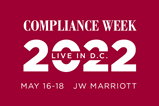The coronavirus pandemic gets more surreal with every news cycle: Another catastrophic drop in the stock market, another sports league shuts down, March Madness gets canceled, Broadway goes dark, freaking Disneyland closes its gates.
These are strange days, indeed. Not a single one of us can predict with any kind of certainty what will come next. And that’s exactly why we need strong ethical voices now more than ever.
Just as a ship needs the lighthouse to get through the fog, businesses need a strong ethical compass to steer through uncharted waters.
It’s simple, really: An ethical company does not put its employees in the position of having to make a decision between personal safety and fulfilling business obligations. You wouldn’t send a construction worker to a job site without a hard hat, so why would you require a sales manager to get on a packed rush-hour train during a pandemic? The latter scenario is more nuanced, but arguably much more dangerous.
From this vantage point, businesses in large part are making the right ethical choices. Most have instituted travel bans, canceled events, allowed (or even required) employees to work from home, or at least thinned the number of people working in an office at any given time to cut down the chances of community spreading of the virus.
These were all decisions made with employee (and customer) safety in mind, not the bottom line. Can businesses do more? Of course. There remain a large number of non-essential contractors, part-time workers, or people in the food, retail, and healthcare industries that are potentially exposing themselves to coronavirus risk by showing up to work. These are tougher decisions for businesses, ones with more mitigating factors.
The fog gets thicker, but the lighthouse remains.
Companies need strong ethical leadership to make these decisions quickly, decisively, and transparently. At a time like this, profits should take a back seat to ethics without exception. Even if the hit to the bottom line is a hard one.
And, of course, government intervention is desperately needed as well. Clearly, not enough is being done on that front on the federal level, and not nearly fast enough. It seems reflexive partisanship is immune to this virus.
We’re all in the same boat here. We’re all faced with these decisions. No company is spared the impact of this global pandemic. Let’s share best practices, learn from each other, and be leaders in plowing an ethical path forward. This isn’t a time to “ride it out” or “wait and see.” Don’t be paralyzed without a plan: take decisive action to protect your business and, more importantly, your employees. We can’t control what tomorrow or next week or next month will bring, but we can control how we react to these turbulent times.
To that end, we want to hear more about what your company is doing to mitigate coronavirus risk for employees and customers. What are some of the toughest decisions you’ve had to make? What crisis management strategies have worked for you? Let us know in the comments below.
And if you’re looking for some guidance, we’ve posted a number of stories dealing with coronavirus-related challenges filled with advice from chief compliance officers, attorneys, and crisis management professionals. We’ve lifted the paywall on these stories, so please use them as a resource and share them with friends and colleagues.
Godspeed, everyone. We’ll get through this together.

Coronavirus: Tips for risk management

As the coronavirus worldwide pandemic spreads, the ramifications for any business has gone from temporary disruption to a serious impediment. Here are 10 steps your company can take to mitigate its risks.
- 1
 Currently
reading
Currently
reading
Ethical leadership more important than ever during coronavirus crisis
- 3
- 4
- 5
- 6
- 7
- 8
- 9
- 10
- 11
- 12
- 13
- 14
- 15
- 16
- 17
- 18
- 19






















































1 Reader's comment